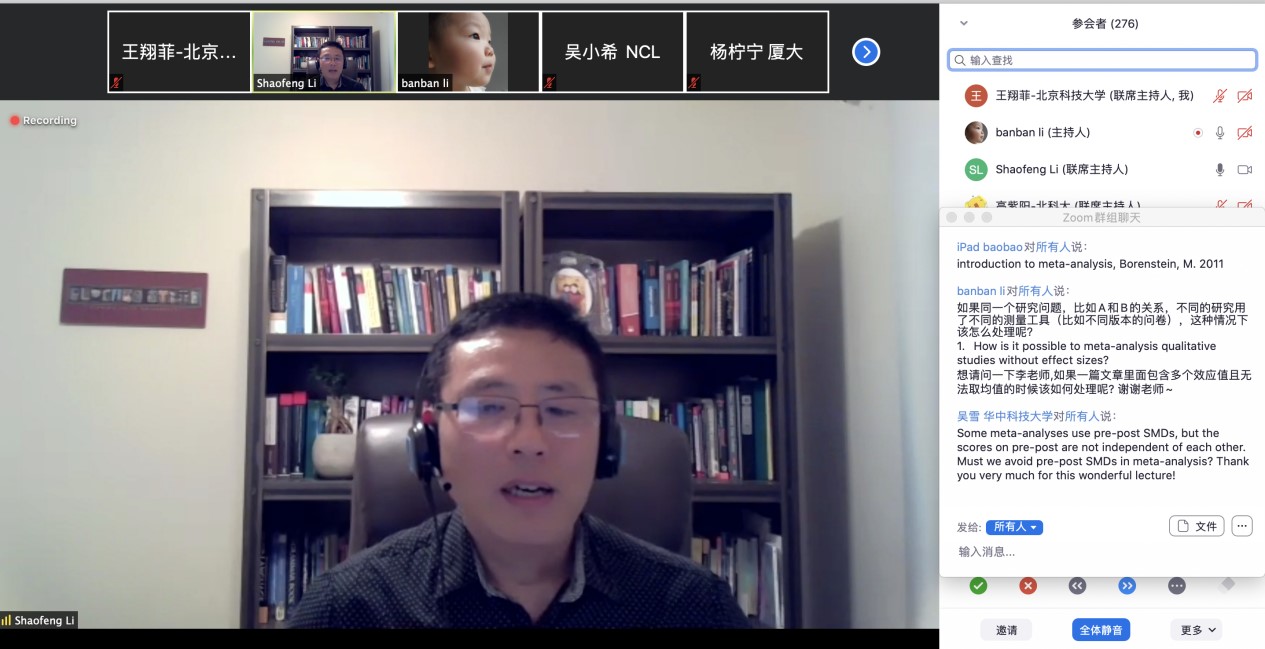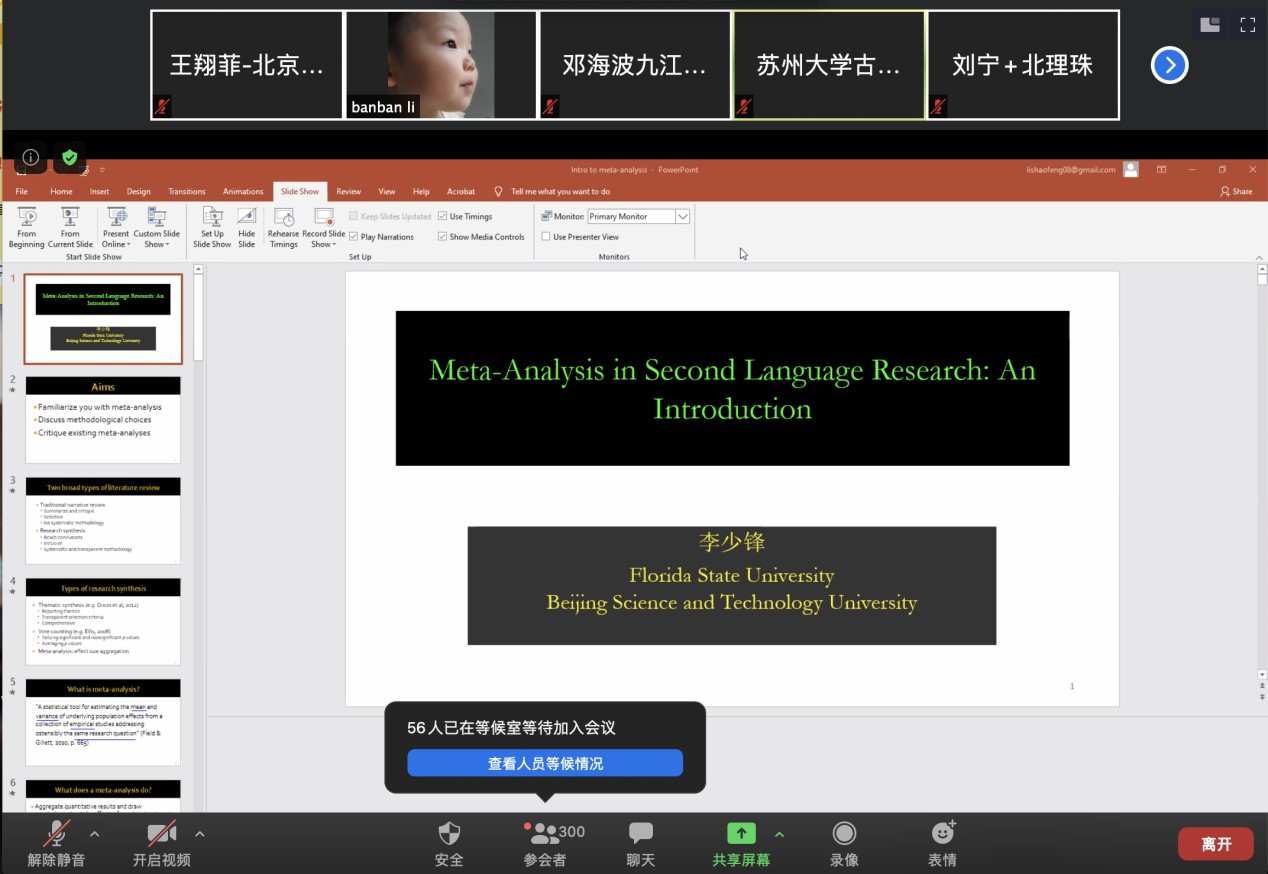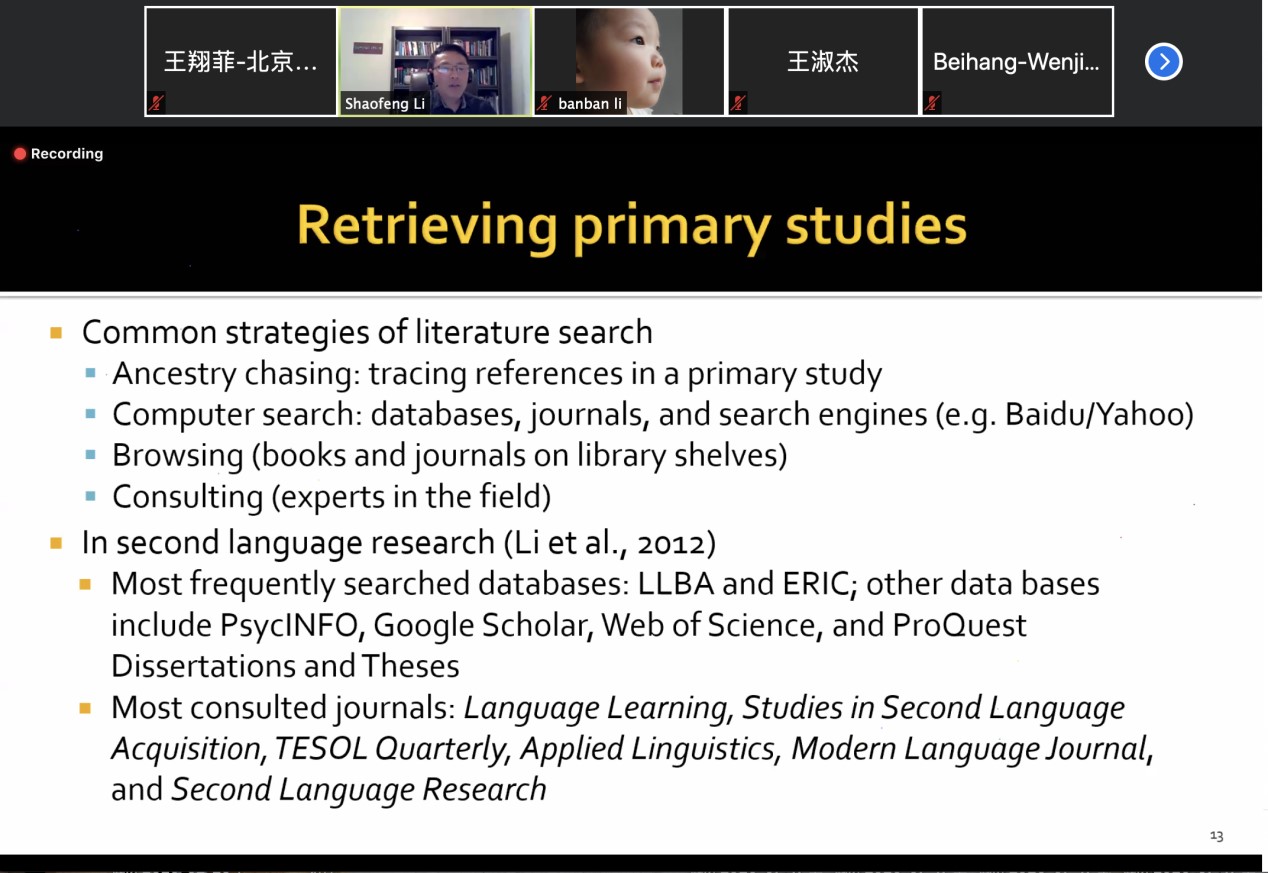The Road to Worldwide Humanities- Meta-Analysis in Second Language Research: An Introduction

The Road to Worldwide Humanities- Meta-Analysis in Second Language Research: An Introduction
At 9:00 a.m. on July 17, 2020, the “Introduction to Meta-Analysis Method”of The Road to Worldwide Humanities was held by the School of Foreign Studies (the SFS) of University of Science and Technology Beijing (USTB) online through ZOOM. Professor Li Shaofeng, director of Foreign and Second Language Education (FSLE) program of Florida State University, USA, was invited to give a lecture. Ms Li Banban from the SFS of USTB presided over the lecture. Participants were teachers and graduate students from linguistics and applied linguistics of the SFS and those from other universities including the University of Connecticut, Western University, the University of Rhode Island, University of Nottingham, Beijing Normal University, Beihang University, Beijing Foreign Studies University, University of International Business and Economics, Renmin University of China, Shandong University, Ocean University of China, Tongji University, Shanghai International Studies University, Zhongshan University, Xiamen University and so on. The number of participants had reached the upper limit of 300 in half an hour before the lecture.

Professor Li’s main research interests include second language acquisition, language learning cognitive ability, task-based learning and quantitative research methods. In recent years, he has published more than 50 academic papers in authoritative journals at home and abroad. In this lecture, Professor Li Shaofeng introduced the application of meta-analysis in second language acquisition. Based on a brief introduction of the definition, function, basic elements and development of meta-analysis, he explained the research proposal and research process of meta-analysis and commented on the advantages and disadvantages of this method in detail.
Starting with two types of literature review, Professor Li introduced meta-analysis, a new research integration method different from traditional literature reviews. For lots of emerging research results, meta-analysis uses data statistics instead of general descriptive discussion, and integrates quantitative research with strict procedures, which can objectively and accurately summarize previous research results. It plays an indispensable role in making comprehensive, objective and accurate summary about research on the relationship between specific variables in a certain field.
Meta-analysis has been applied in medicine, education, social sciences and other fields. On this basis, it can provide innovative guidance for second language acquisition research, which can be divided into five steps: identifying a topic, doing a preliminary search for information., coding data, analyzing the data, and reporting and interpreting the results.

Professor Li listed the factors and variables of learners’ learning ability, attitude, motivation, anxiety and feedback in the process of second language acquisition, and provided relevant literature on different topics as a supplement to the criteria for selecting literature such as publication bias. He suggested that meta-analysis in second language acquisition should use published results as samples. On this basis, we can reasonably use the parameters such as p value, d (standard deviation/ mean deviation), r (correlation coefficient), or OR (the possibility of an event happening in another case compared with one case) to calculate the effects through comprehensive meta-analysis and R language regression analysis. Through a large number of comprehensive quantitative studies, we can explore the relationship between different variables in second language acquisition.

Although the lecture was held online, teachers and students were still actively involved. At the end of the lecture, many of them asked Professor Li Shaofeng questions, and there were always new members trying to join the webinar. The teachers and students benefited a lot from the heated discussion with Prof. Li.
This lecture is a great opportunity for teachers and students to have academic exchanges with scholars and experts from all over the world. Participants exchanged ideas in in-depth discussions with Professor Li, and explored the advanced nature of meta-analysis and its enlightenment to the study of second language acquisition. It is believed that this lecture will greatly promote the application of meta-analysis in applied linguistics, and help the USTB teachers and students and all other participants to enhance their overall scientific research strength.
